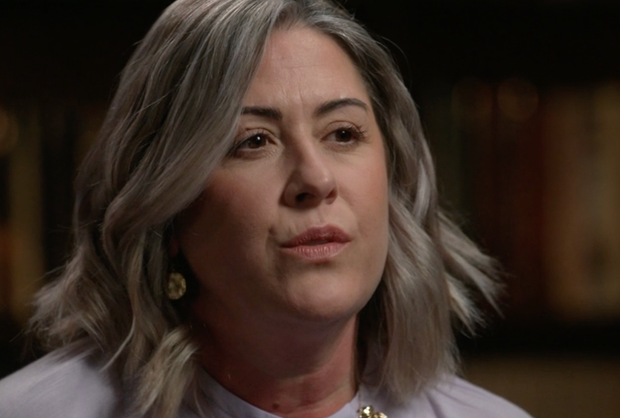Caroline Darian remembers the day and time she got the call from her mother, Gisèle Pelicot, that changed everything: 8:25 p.m. on a Monday in November 2020.
“She announced to me that she discovered that morning that [my father] Dominique had been drugging her for about 10 years so that different men could rape her,” Darian told CBS News partner network BBC News in an exclusive interview. “It was like an earthquake. A tsunami.”
Just over four years later, a judge in France would find Dominique Pelicot, along with dozens of men he invited to assault Gisèle, guilty of aggravated rape. He was given the longest sentence allowed under French law for his crimes, 20 years in prison.
BBC
Gisèle Pelicot waived her anonymity and walked into court every day with her head held high, becoming a symbol of courage in the fight against sexual violence.
In 2020, after Gisèle’s phone call, Darian and her two brothers traveled to support their mother where she had been living with their father in the south of France.
Then, Darian got another call, this time from the police.
Officers showed her two photos they had found on her father’s computer. In the images, there was an unconscious woman in a bed wearing only a T-shirt and underwear.
“The police officer said: ‘Look, you have the same brown mark on your cheek… it’s you.'” Darian said. “I looked at those two photos differently then… I was laying on my left side like my mother, in all her pictures.”
Darian is convinced her father drugged and assaulted her like he did her mother, Gisèle, though he has denied it.
“I know that he drugged me, probably for sexual abuse. But I don’t have any evidence,” she said.
There is no evidence of what may have been done to Darian, “and that’s the case for how many victims? They are not believed because there’s no evidence. They’re not listened to, not supported,” she said.
Darian said that amid the trauma of learning that she had been drugged and raped by a man she trusted upward of 200 times, Gisèle struggled with the idea that it could have happened to her daughter.
“For a mom, it’s difficult to integrate that all in one go,” Darian said.
She now advocates for other victims of so-called chemical submission, which is believed to be underreported as most victims and survivors don’t remember it happening at all.
“When I look back, I don’t really remember the father that I thought he was. I look straight to the criminal, the sexual criminal he is,” Darian said. “But I have his DNA, and the main reason why I am so engaged for invisible victims is also, for me, a way to put a real distance with this guy…I am totally different from Dominique.”
Darian says it’s a “terrible burden” to be the child of both the victim and the torturer.
“He should die in prison,” she said. “He is a dangerous man.”

